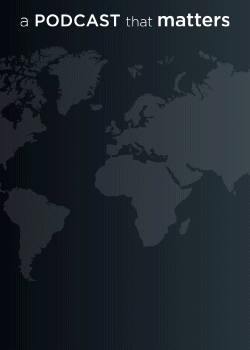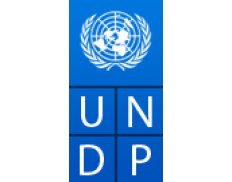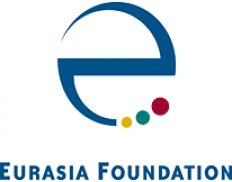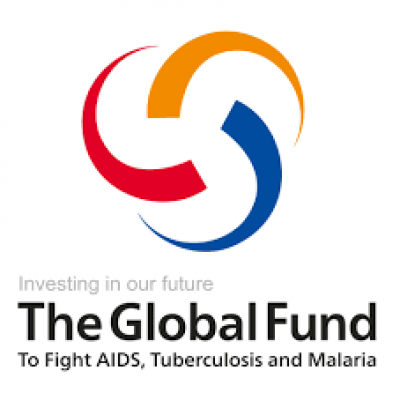Details
Description
Background
UNDP is committed to achieving workforce diversity in terms of gender, nationality and culture. Individuals from minority groups, indigenous groups and persons with disabilities are equally encouraged to apply. All applications will be treated with the strictest confidence.
UNDP does not tolerate sexual exploitation and abuse, any kind of harassment, including sexual harassment, and discrimination. All selected candidates will, therefore, undergo rigorous reference and background checks.
Uzbekistan has embarked on an ambitious reform agenda, with the considerable attention being paid to development of medium- and long-term development vision. In 2017 the Government adopted the Action Strategy on Five Priority Areas of Development of Uzbekistan in 2017-2021 (the ‘Action Strategy’), which sets out a comprehensive agenda covering institutional and administrative, judicial, economic, social reforms and enhanced partnership and regional cooperation. The Action Strategy is supported by state programmes, approved annually, which set out the main activities to be implemented, funding amount, sources of financing, expected results.
The ability to implement these reforms relies on, among other, identifying optimal approaches to development financing. Uzbekistan’s spending needs are large and will require careful consideration of funding options. The IMF has conducted a needs assessment analysis for Uzbekistan in 2018 with the aim to estimate the additional spending needed to close the funding gap to achieve the sustainable development agenda by 2030 . The study focuses on a selection of the SDGs, specifically the goals related to education, health (public and private) and infrastructure. According to this analysis annual additional spending on infrastructure and social sector needed to meet SDGs is estimated at 8.7 percent of GDP.
The above study clearly indicates that development financing will need to be scaled up significantly, which would require thorough analysis of opportunities and constraints presented by various funding sources (state budget, foreign and domestic borrowing, ODA, alternative finance instruments, etc.). As in many other middle-income countries, it is likely that in Uzbekistan the national budget will be the primary source of financing for development in the immediate future. According to the recent UNDP estimates currently the government allocates approximately 72% of state budget on activities that are directly linked to achievement of the SDGs. Nonetheless, the prospects of the state budget to scale up its resources will depend on the outcomes of the ongoing tax reforms.
UNDP Uzbekistan initiated the work on exploring Islamic Finance (IF) instruments in September 2019 with the pre-scoping mission visiting Uzbekistan to explore opportunities and discuss potential of IF in the country. The interest from various partners, including the Ministry of Finance, the Capital Market Development Agency and the Chamber of Commerce to analyze the market potential has triggered the initiation of the IF landscaping analysis in late November 2019, which is expected to help map the opportunities with potential partners. It is expected that the project identifies a number of innovative financial instruments with the most potential. The research will explore at least 15 variations of the instruments (such as crowdfunding, Zakat, microfinance, etc.) and will draft action plans for the most promising cases.
The goal of the project is to support the establishment of an Integrated National Financing Framework, mobilizing public and private resources needed to fund development and provide on-demand policy research and capacity building (further referred to as the ‘On-demand facility’) to help maximize the impact of policies/reforms on economic, environmental and social dimensions of the 2030 Agenda.
Duties and Responsibilities
Project Manager will work under the direct supervision of the UNDP Inclusive Growth Cluster Lead and the overall guidance of the National Project Coordinator. The Project Manager will ensure smooth and timely delivery of operations in accordance with annual and quarterly work plans of the Project through performing the following duties and responsibilities:
Project Management – Financial, Administrative and Human Resources:
Lead the project team whether staff and short-term consultants, in both substantive and operational issues ensuring optimization of human and financial resources and nurturing a culture of results with highest performance standards;
Undertake day-to-day management of the programme, including effective programme implementation and documents progress towards the achievement of outputs;
Manage the programme budget and facilitate budget approvals and revision processes as per UNDP policies and procedures;
Ensure appropriate recording and accounting documentation as required by UNDP and preparation of required financial reports. Facilitate transparent financial management of the programme that is able to stand up to regular audits and evaluation;
Approve requisitions, and follow up on purchase orders and payment requests in UNDP ATLAS and other relevant systems, and ensure monthly delivery of programme outputs;
Prepare work plans, produce timely reports – financial and progress reports – as required by UNDP and donor reporting systems;
Ensure that UNDP rules and regulations concerning finance, procurement and human resources are adhered to; and,
Support an environment of learning for staff within the programme.
Project Planning, Implementation, Monitoring and Evaluation:
Develop the necessary strategic documents concerning programme planning and implementation, such as policy papers, concept notes, etc.;
Provide strategic advice, direction and direct technical input to the UNDP, Inclusive Growth Cluster on employment and job creation issues;
Ensure programme assessments are undertaken and relevant baseline data collected so programme monitoring and evaluation can take place;
Oversee the establishment of the monitoring and evaluation plan of the Project and ensure its implementation;
Guide the development of the programme’s communication strategy in close collaboration with relevant partners;
Ensure gender is integrated and mainstreamed throughout the programme outputs;
Develop Terms of Reference for programme consultants/experts hired on a short-term basis and ensure proper delivery of technical services and submission of technical and other reports;
Ensure the participation and involvement of relevant stakeholders in programme - implementation so that the process is inclusive, participatory and transparent;
Ensure proper coordination of the programme implementation among implementing partners and with government ministries and administrations;
Ensure sustainability of the programme intervention by promoting leadership and ownership of the programme implementation by government and through proper capacity building;
Ensure the timeliness and quality of the outputs as well as timely preparation of reports on achievements and challenges faced within the project;
Ensure delivery of resources and results according to planned targets;
Ensure compliance with donors’ agreements;
Promote identification and synthesis of best practices and lessons learned for organizational sharing and learning.
Advocacy, Partnerships and Resource Mobilization:
Establish and maintain partnerships with stakeholders (government, UN agencies, NGOs, CBOs and donors);
Support the UNDP Country Office in mobilization of resources from different partners, including the preparation of strategies, programme briefs and project documents, organization of regular donor meetings and field visits;
Extract lessons learned to support programme improvement and feed into UNDP future of work policies and programming knowledge globally (Facilitation of knowledge building and knowledge sharing);
Provide leadership on early recovery and livelihoods issues within the UN in collaboration with other key UN partners such as ILO, UNICEF, IOM, World Bank;
Provide leadership and advocate to address policy related issues and other challenges to ensure inclusive growth; and
Perform other duties as assigned by management.
Institutional Arrangement
The Project Manager will work under the direct supervision and guidance of the UNDP Inclusive Growth Cluster Lead and close collaboration with the National Project Coordinator(s). The Project Manager works in close collaboration with the national partners, project teams, operations, and Programme’s staff in the UNDP CO to exchange information and ensure consistent service delivery, and undertake day-to-day responsibility for operational and thematic support services for the satisfactory achievement of the assigned tasks.
Nationals or others legally authorized to work in Uzbekistan are eligible. (country of citizenship or place of permanent residence)
Competencies
Core Competencies (Level 3)
Achieve Results:
Set and align challenging, achievable objectives for multiple projects, have lasting impact
Think Innovatively:
Proactively mitigate potential risks, develop new ideas to solve complex problems
Learn Continuously:
Create and act on opportunities to expand horizons, diversify experiences
Adapt with Agility:
Proactively initiate and champion change, manage multiple competing demands
Act with Determination:
Think beyond immediate task/barriers and take action to achieve greater results
Engage and Partner:
Political savvy, navigate complex landscape, champion inter-agency collaboration
Enable Diversity and Inclusion:
Appreciate benefits of diverse workforce and champion inclusivity
People Management Competencies
UNDP People Management Competencies can be found in the dedicated site.
Cross-Functional & Technical Competencies
Business direction & strategy - Strategic Thinking:
Ability to develop effective strategies and prioritized plans in line with UNDP’s objectives, based on the systemic analysis of challenges, potential risks and opportunities; linking the vision to reality on the ground, and creating tangible solutions
Ability to leverage learning from a variety of sources to anticipate and response and future trends; to demonstrate foresight in order to model what future developments and possible ways forward look like for UNDP
Business Management - Project Management:
Ability to manage programmes and projects with a focus at improved performance and demonstrable results
Required Skills and Experience
Education:
Master’s degree in the field of public administration, economics and/or project management in the sphere of e-government, socio-economic development , public administration.
Bachelor’s degree in a related field with additional 2 years of experience can be taken into consideration in lieu of Master’s degree.
Experience:
5 years (with Master's degree) of experience in public administration, economics, business management, management, IT management, international relations or other related fields.
7 years (with Bachelor's degree) of experience in public administration, economics, business management, management, IT management, international relations or other related fields.
Required Languages:
Fluency in English, proficiency in Uzbek and Russian languages.
Required Skills:
Sound comprehension of labour markets and employment policies, so as approaches and standards;
Proven experience with the advanced methods and methodologies of designing and implementing labour market programmes;
Strong knowledge of the current labor market situation and challenges in Uzbekistan.
Desired skills in addition to the competencies covered in the Competencies section:
Strong communication skills, client-orientation, ability to work in a team;
Ability to promote a knowledge sharing and learning culture in the team through leadership and personal example;
Initiative, analytical judgement, ability to work under pressure, ethics and honesty;
Ability to use information and communication technology as a tool and resource;
Knowledge of spreadsheet and database packages, experience in handling of web-based management systems.





